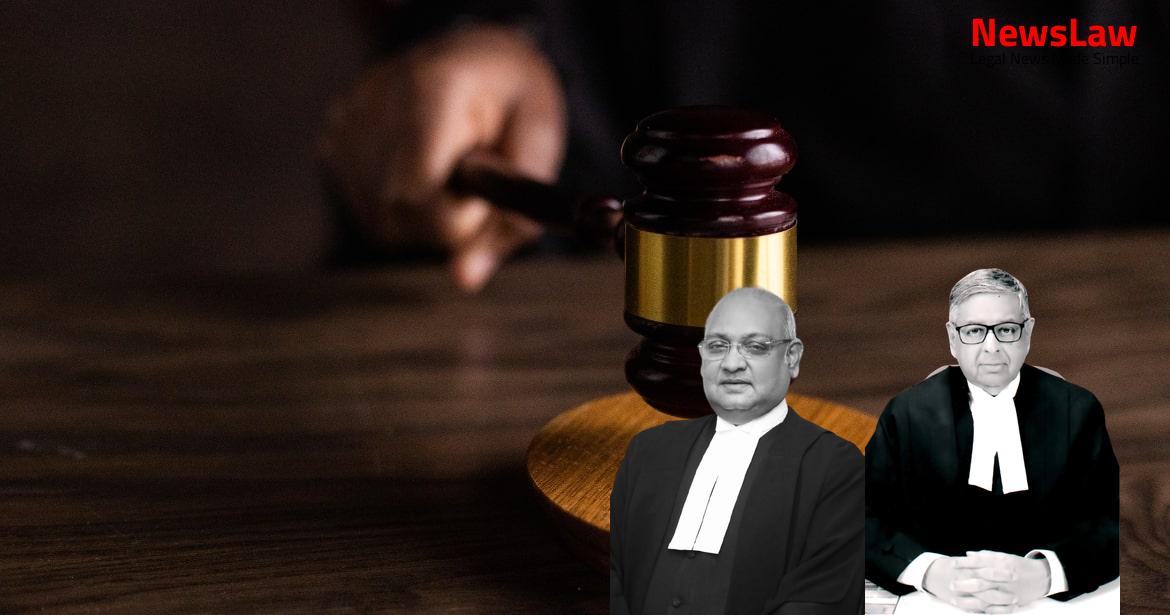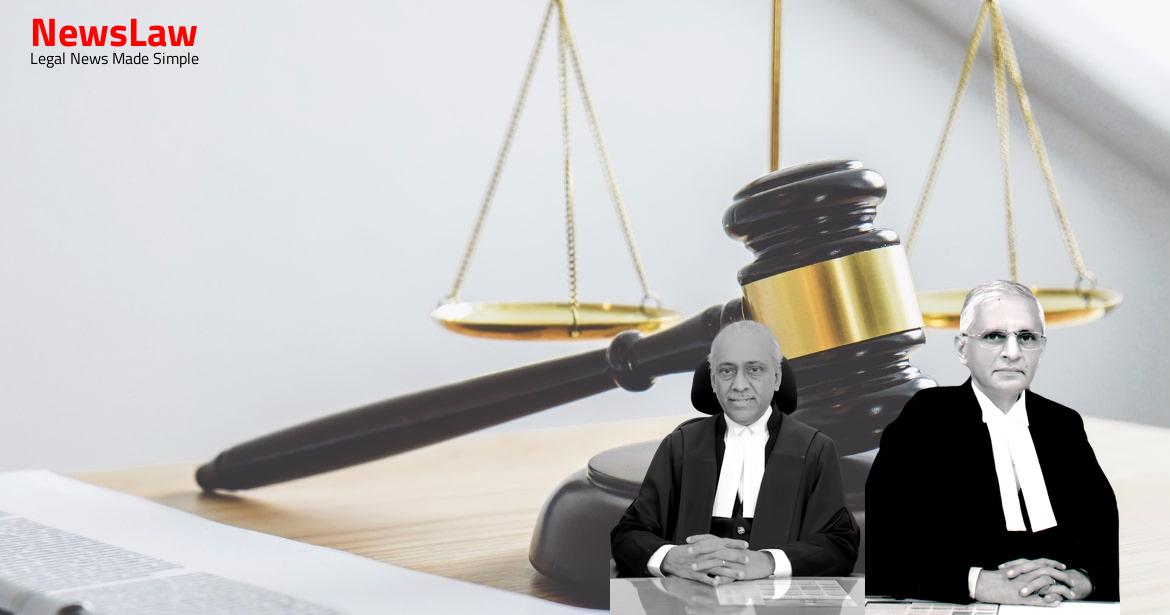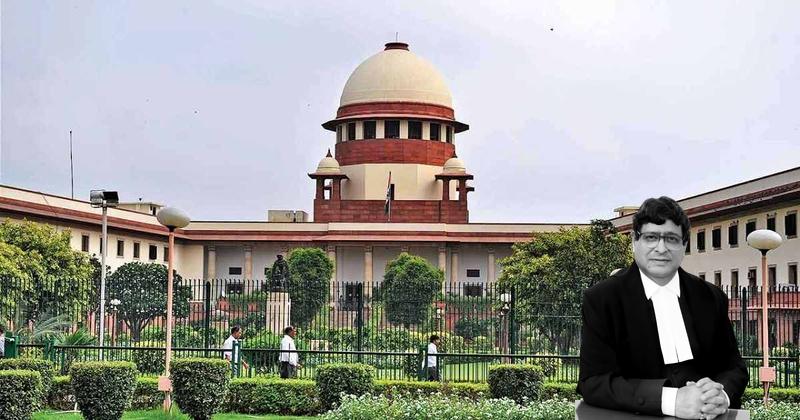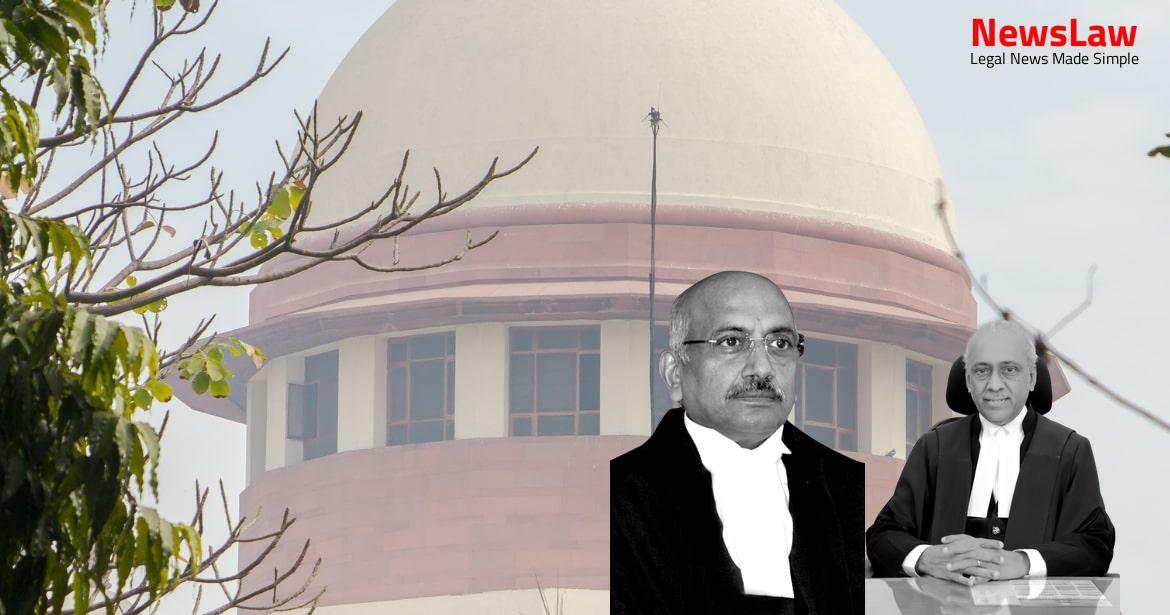In a significant legal ruling, the court closely examined the intricate details of a Workmen’s Compensation case involving a fatal work-related incident. The focus was primarily on the court’s meticulous analysis regarding the causal link between the workman’s job and the unfortunate event leading to his demise. Stay tuned to explore the insightful legal perspectives that shaped this crucial judgment.
Facts
- The Appellant had filed a claim under section 4 of the Workmen’s Compensation Act, 1923.
- The claim was made on behalf of the deceased workman who died in a road accident during the course of his employment.
- The Commissioner had awarded compensation to the dependents of the deceased workman.
- The High Court, in the Miscellaneous First Appeal, reversed the Commissioner’s decision and set aside the compensation awarded.
- The High Court’s decision was based on the grounds that the accident did not arise out of and in the course of employment.
- The Commissioner found lack of evidence regarding the cause of death and admission of the workman into the hospital, questioning the nexus between the death and the occupation of the workman.
- The Commissioner considered documents like FIR, inquest mahazar, spot mahazar, post mortem report, and statements during the examination to confirm the death of the workman while driving the auto-rickshaw.
- The Commissioner affirmed the dependents of the deceased and his monthly wages and daily allowance.
- The Commissioner set the compensation amount at Rs. 4,15,960 based on the deceased’s monthly wages.
- The Commissioner held the insurance policy valid and the insurer liable to pay compensation to the claimants.
Also Read: Ensuring Maintenance Rights: Court’s Legal Analysis
Issue
- The Commissioner framed three main issues for consideration in the present case
- Issue 1: Establishing the cause of death of the deceased while driving the autorickshaw owned by the first respondent on 07.04.2010
- Issue 2: Proving the dependency of the petitioners on the deceased
- Issue 3: Providing evidence of the deceased’s monthly salary and age while working as a driver
Also Read: Legal Analysis: High Court’s Critique of Authority Actions
Arguments
- Learned counsel argues that the claimants have established foundational facts of death during employment due to reasons attributable to the job.
- Commissioner’s findings of fact were based on relevant material and not perverse.
- Distinguishes the case of Shakuntala Chandrakant Shreshti where nature of duty did not cause stress or strain.
- No substantial question of law justifying interference by the High Court.
- Deceased was 30 years old, a driver on an auto-rickshaw, and died due to cardiac arrest from job-related strain and stress.
- Learned counsel for the respondent-insurer supports the judgment and order passed by the High Court.
- The emphasis is on the appellants’ failure to establish that the death occurred due to employment or reasons attributed to employment.
- The learned counsel argues that since the claimants failed to prove basic jurisdictional facts, the High Court’s interference was justified.
Also Read: Analyzing Evidentiary Value in Criminal Conviction Case
Analysis
- The Commissioner’s findings were based on the material on record and not deemed perverse.
- The High Court’s observations were assumptive and lacked specific conclusions on perversity.
- No substantial question of law existed for the High Court to interfere with the Commissioner’s judgment and award.
- The death of the 30-year-old workman was deemed attributable to his job as a driver based on the evidence presented.
- The Commissioner’s view was considered reasonable given the circumstances.
- Interference by the High Court was unwarranted as the case did not involve any substantial question of law.
Case Title: C. MANJAMMA Vs. THE DIVISIONAL MANAGER (2022 INSC 365)
Case Number: C.A. No.-002568-002568 / 2022



